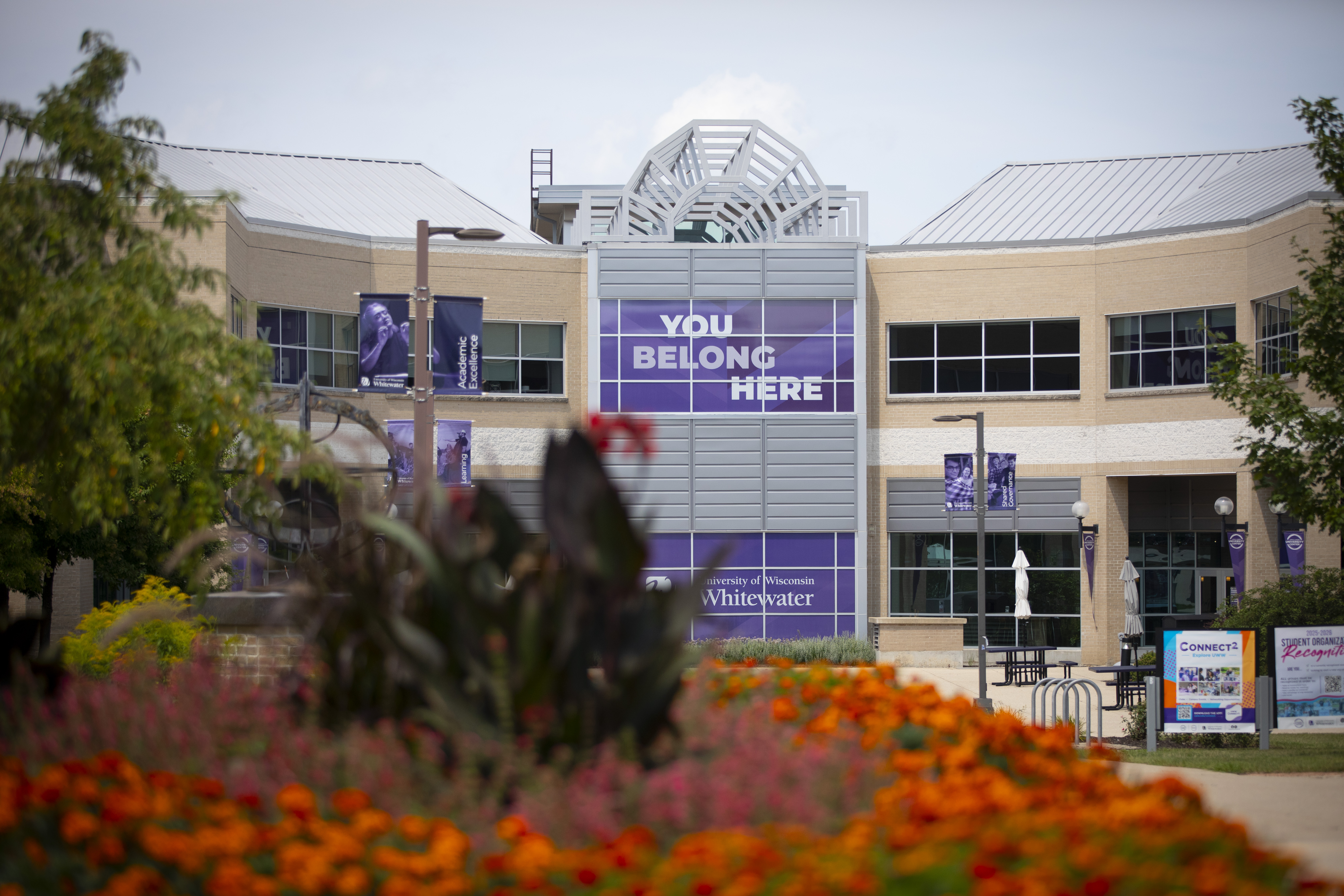Quick Questions
Request an appointment through out website or virtual or in person coaching sessions University Center, 129 (next to the Warhawk Connection Center). We hope to meet and work with you soon!
Office Hours:
Monday - Thursday, 8:00 am - 4:30 pm Friday, 8:00am-12:00pm
University Center, 129
(262) 472-2154
FinLit@uww.ed
There really isn't a correct answer to this question since each option comes with its own set of pros and cons, and varies depending on individual needs, preferences, and financial situation. On-campus life can be vibrant with social opportunities, close facilities (gym, dining hall), and various amenities (laundry, custodians, internet). Dorm drawbacks include a lack of quiet time, small space, communal bathrooms, and privacy. Living off-campus offers more space and privacy, and the ability to make your own household rules; however, it might include increased isolation, a longer commute, cooking, cleaning, and additional costs to live (internet, cleaning supplies, utilities, summer rent). Be sure to consider all aspects before making a decision.
The Cost Estimator calculator can be used by students to obtain an estimate of what it will cost to attend UW-Whitewater based on individual student circumstances. Tuition, housing, meals, and parking costs are included in this calculator. In addition, when planning total expenses for the academic year, families should consider budgeting for additional expenses like supplies, food, clothing, transportation, and entertainment.
There are low-cost or free events and resources for students while at UW-Whitewater.
-
Being Money Smart at UW-W. Written by students for students, this 55+ page document shares money saving tips on topics such as housing, transportation, food, financial basics, and much more.
-
Campus Events Calendar. Search the calendar for opportunities to entertain yourself without breaking your budget.
-
Clubs and Organizations. Become involved in student organizations while on campus. UW-Whitewater has approximately 200 student organizations, and you are sure to find or start an organization of interest.
-
Financial Literacy Center. A financial resource located in the University Center next to the Warhawk Connection Center, to provide financial education and information to students through individual coaching sessions, online resources, and financial wellness presentations.
-
University Center. At the heart of the Whitewater campus, the UC provides opportunities for students to enhance their college experience and stay connected to campus. The facility includes meeting areas, a bowling alley, and a movie theatre. Many events held here are low cost or free to students.
-
Warhawk Emergency Fund. An emergency aid fund to provide assistance to students at risk of dropping out of college due to unexpected financial emergencies.
-
Warhawk Pantry. Located in the basement of Drumlin Hall and at the Rock campus, these free pantries can be utilized by students in need of food or toiletries.
The Whitewater area offers a variety of resources to their community members.
- Food Pantries and Meals. Community resources available to those in need of food.
- The Community Space. Available on Tuesday 8:30-11:00am, Wednesday 3:30-7:00pm, and Saturday 8:30am-12:00pm. 834 E. Milwaukee Street, Whitewater, (262) 379-0187
- Free Student Lunch. Available on Tuesdays from 11:00 am - 1:00 pm during the fall and spring semesters. 145 S. Prairie Street, Whitewater, (262) 473-2131
- Little Free Pantry. Drop off donated food or pick up what you need. Two locations: 1143 W. Walworth Avenue & 431 W. Center Street, Whitewater
- Whitewater Community Food Pantry. Available to citizens in need who live within the Whitewater School District. 146 E. North Street, 2nd Floor, Whitewater, (262) 473-5792
- Walworth County Food Pantry. Available to residents of Walworth County. 205 E. Commerce Court, Elkhorn, (262) 723-4488
- Irvin L Young Memorial Library. The library hosts free events, and provides patrons the ability to borrow books (digital and paper), DVD's, video games, magazines, and much more. 431 W. Center Street, Whitewater, (262) 473-0530
- Resale and Consignment Shops. Whitewater, and the surrounding area, have many thrift stores to purchase gently-used items.
- Reflections of the Past. 182 W. Main Street, Whitewater, (262) 473-6050
- Thrift Shoppe. 123 Church Street, Whitewater, (262) 473-3138
- Goodwill Stores. 1530 Madison Avenue, Fort Atkinson, (920) 563-8950
- Goodwill Stores. 2003 Holiday Drive, Janesville, (608) 758-8794
- St. Vincent de Paul. 1525 Summit Drive #4, Fort Atkinson, (920) 568-1266
- St. Vincent de Paul. 1438 Ryan Avenue, Jefferson, (920) 674-4546

